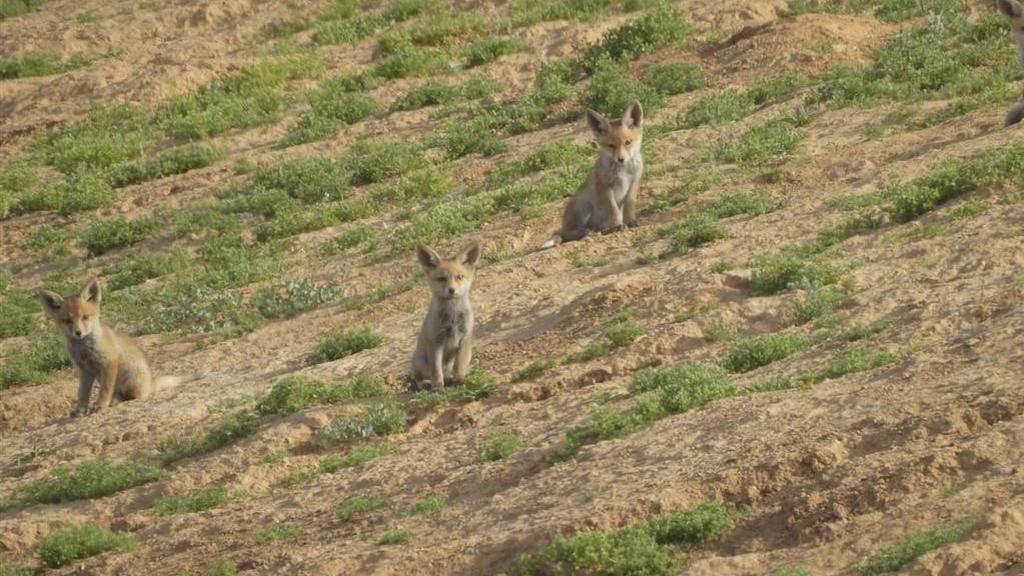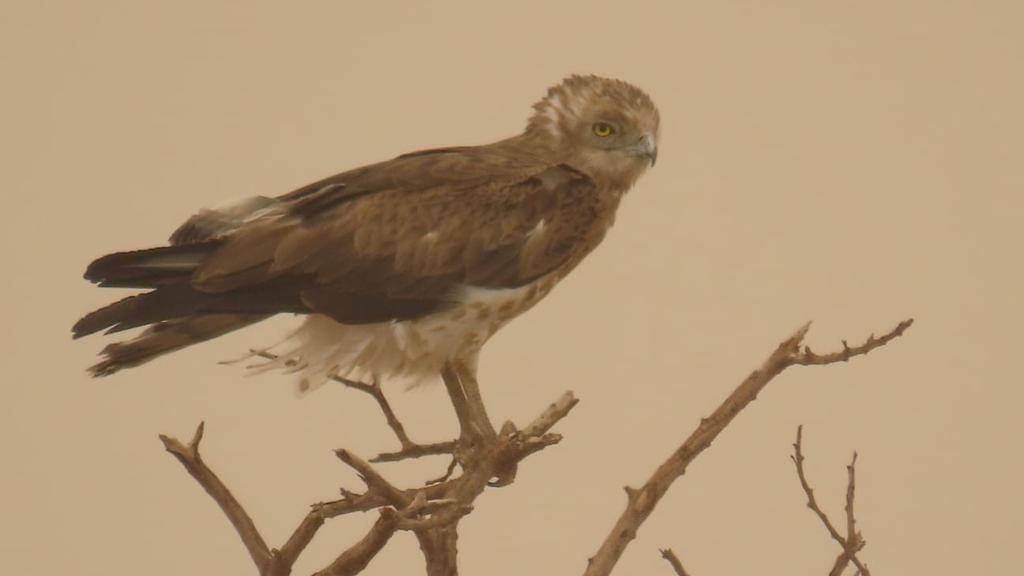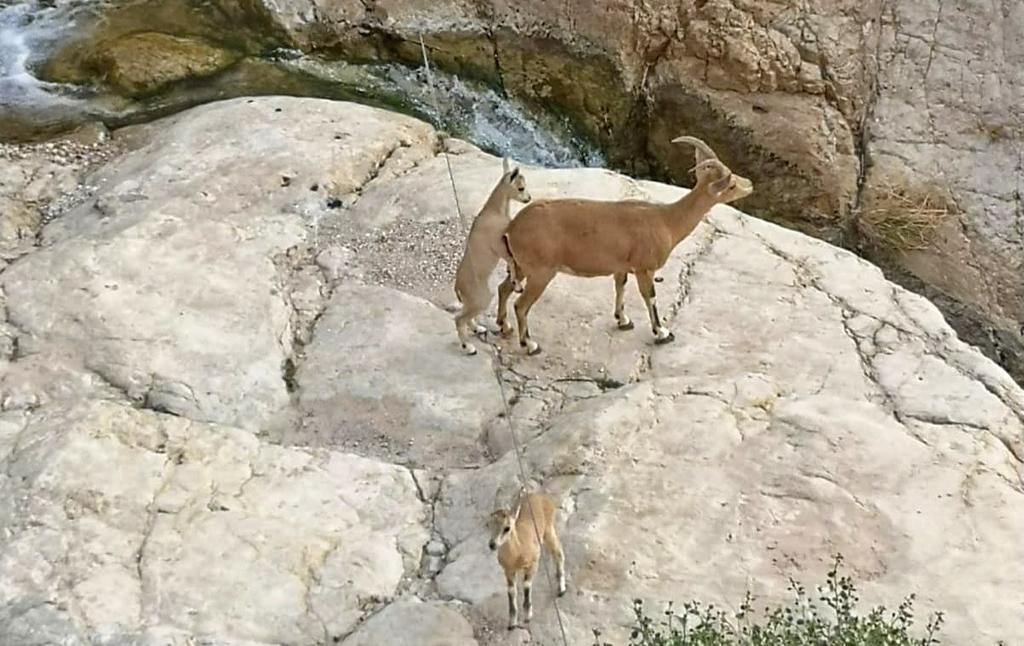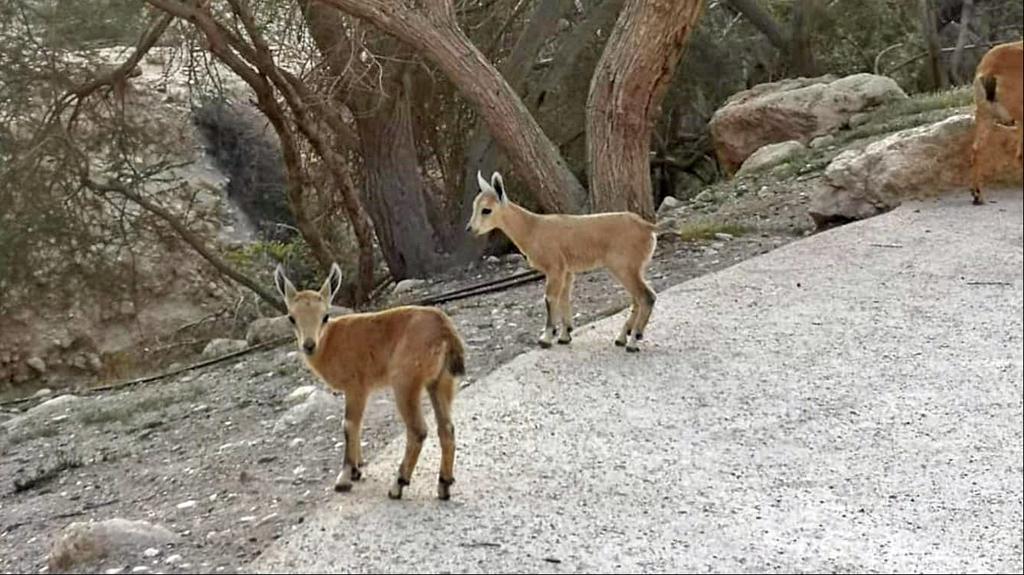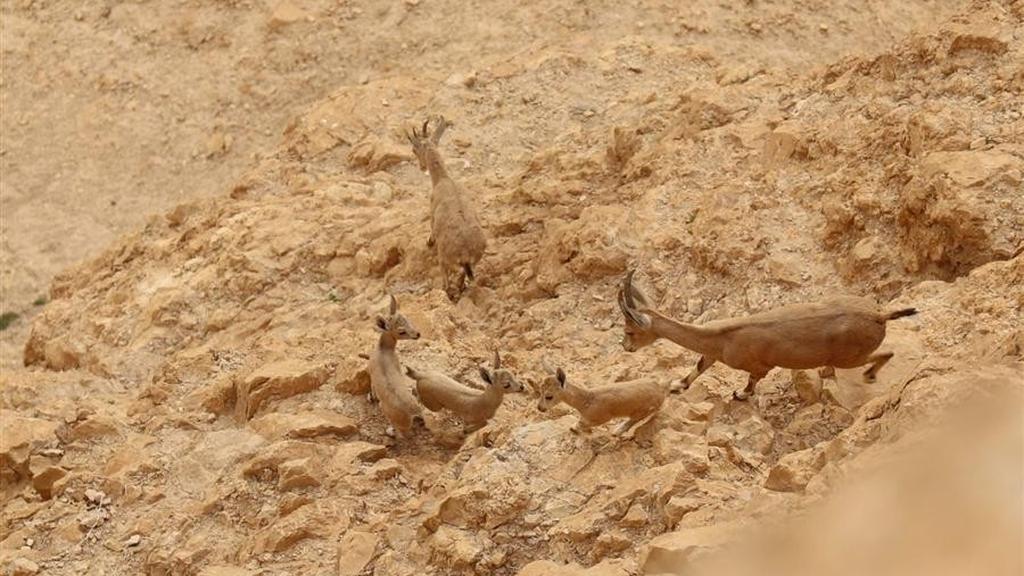During last Year’s Passover, more than one million Israelis took advantage of the holidays to visit nature the country's many nature reserves and parks, and to take in the spectacular view of Israel’s varied wildlife.
However, these locations remained devoid of people this year due to the coronavirus outbreak and in the absence of humans, the local wildlife emerged in its full splendor, creating sights and scenes never seen before by a human eye.
The Jewish holidays typically present an opportunity for many to observe Israeli nature's beauty, but now they are confined to their homes, leaving only a few Israel Nature and Parks Authority employees in the normally busy reservations.
For example, approximately 40,000 people visited the Ein Gedi nature reserve in 2019.
"As a matter of course, thousands of travelers hike these trails," said reserve manager Dudi Greenbaum.
"Last Friday though, I was sitting in a car park with one of the inspectors for a coffee break, and the view was completely different - a doe accompanied by her two fawns was lounging underneath a tree without fear, while at the same time a green bee-eater bird dug a nest in the dirt next to our parked car."
7 View gallery
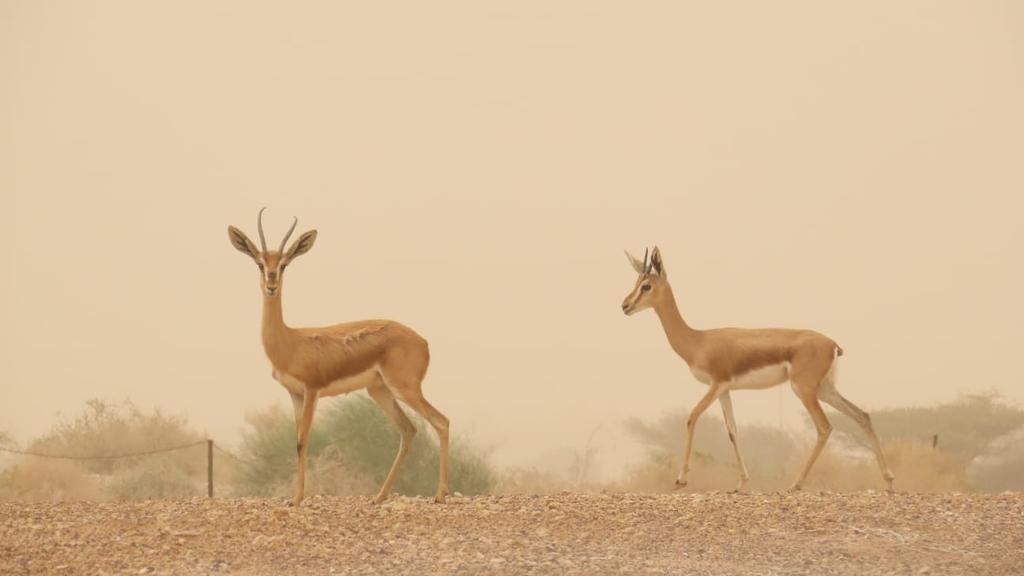

Gazelle in Evrona in southern Israel
(Photo: Omri Omassi, Israel Nature and Parks Authority)
Usually during this season, the does go mating on the cliffs of the Judean Desert, away from desert predators, then they return early in spring, straight into the busiest time of the year when travelers fill the reservation.”
In the coming weeks, we will see more and more fawns born into this new reality, where the reserves are reserved just for them."
In Masada, one of the most popular sites in Israel, usually packed with thousands of visitors every day, an interesting phenomenon took place.
On the mountains, amid the archaeological finds and spectacular vantage points offered by the mountain, instead of hikers you can see packs of gazelle climbing to the summit.
This sight was impossible last year when approximately 40,000 visitors visited Masada.
In the ruins at Mamashit National Park near Eilat, there is a yearly Nabataean Market each Passover. This year, the park and the ruins remained empty - with only a single Grey Wolf running through the usually busy ruins of the sun-scorched Nabataean city.
The Holot Yavne reservation near Ashdod, another popular tourist spot, was just as empty of people. A gazelle herd was caught on camera, however, walking the rocky, dusty slopes of the reservation.
In the Evrona reserve in the Arava live two types of gazelle, the Dorcas, and the aptly named Arava. The reserve is also home to 13 types of bats, including the extremely rare natterers bat, which is no bigger than 7 centimeter (3 inches).
"The renaissance of animals is not surprising," says Asaf Tsoer, an ecologist at Nature and Parks Authority's Southern District.
"It is familiar to rangers at sites like Ein Avdat and Ein Gedi - where even on regular days, the wildlife comes to drink water and eat the plants after the reservations are closed."
He said that in order to allow wildlife activity to continue without human interference, it is of great importance to keep using only marked trails - so the rest of the area remains undisturbed.
7 View gallery
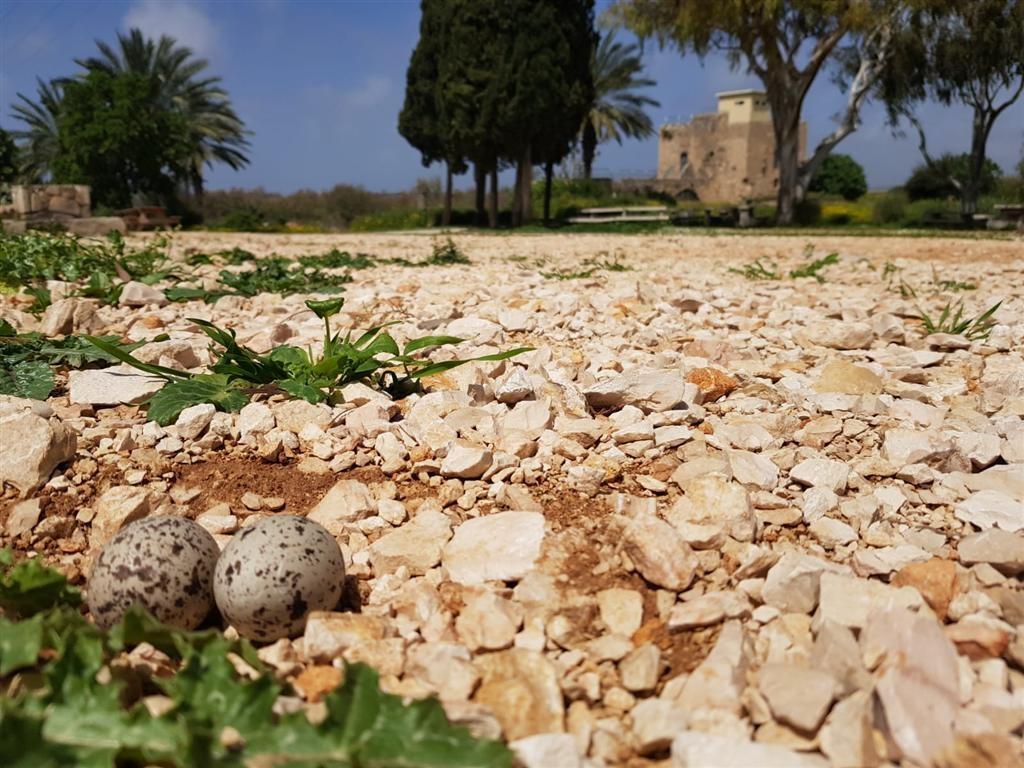

Eggs of a Thick-knee bird in Ein Afek reserve in northern Israel
(Photo: Tamar Ovdat, Israel Nature and Parks Authority)
"This is also why the reserves are closed to travelers right before dark, to allow the wildlife to behave without concern," Tsoer said.
At Einot Tzukim Nature Reserve next to the Dead Sea, which also holds the title of the lowest place on Earth, there were roughly 16,000 visitors during last year's Passover holiday.
Here, too, the site remained closed to visitors this year- and so a rare phenomenon was observed right inside the wading pools.
“Every year at this time, visitors tell me that something mysterious occasionally bites them in the reservoir's spring pools,” says reserve manager Eldad Hazanand. “Usually my explanations about the fish that live in the water aren't satisfactory enough."
“Every day of the year, children swim alongside the fish - which include both tilapia and redbelly tilapia - but they usually cannot be seen to the many swimmers in the pool. In recent weeks, however, the tilapias have had the pools to themselves and have begun courtship and nesting rituals that are usually only seen in their natural habitats in the wild."
The courtship and nesting of the tilapia begin when the male prepares the nest and waits for the female to lay her eggs. The male then watches over the nest as the female incubates the eggs inside her mouth.
After the eggs hatch, the minnows emerge from their mother's mouth to feed and flee back from potential danger.
Another prominent site is the Beit Guvrin National Park, which is home to numerous caves, including the spectacular man-made bell-shaped cave where musical performances are held every Passover.
Last year, about 15,000 travelers visited the park - this year, they were replaced by bats that inhabit the caves.
When the site is open to visitors, these bats move elsewhere and return only when the visitors leave.
These days, when the site is empty, the cave's bat population is thriving and their calls are heard louder than usual thanks to the rare silence in the caves.


